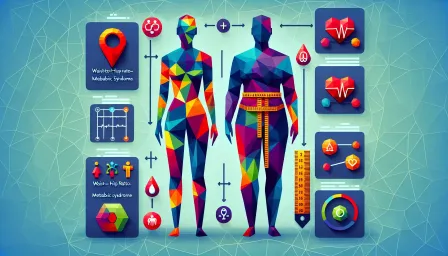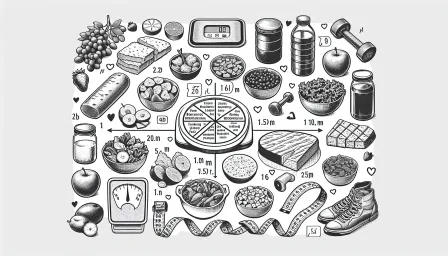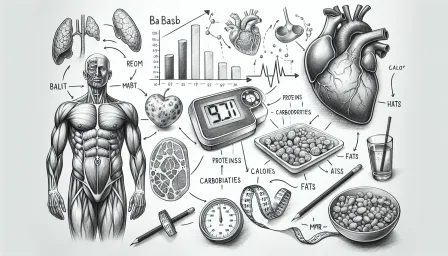Effective Strategies for Weight Loss Maintenance After Intermittent Fasting

Discover comprehensive and effective strategies for maintaining weight loss after intermittent fasting, ensuring long-term health and wellness.
Intermittent fasting has become a popular method for losing weight, but maintaining that weight loss can be a challenge. This guide provides effective strategies to help you sustain your weight loss and enjoy long-term health benefits.
Introduction
Intermittent fasting (IF) has emerged as a popular and effective weight loss method, applauded for its simplicity and various health benefits. However, once the initial weight loss is achieved, the real challenge lies in maintaining it. Weight loss maintenance after intermittent fasting requires a strategic approach that encompasses dietary habits, physical activity, and lifestyle adjustments. In this article, we will explore various strategies to help you sustain your weight loss after intermittent fasting.
Understanding Weight Loss Maintenance
Sustaining weight loss involves more than just continuing the practice of intermittent fasting. It requires a comprehensive plan that accommodates your body's needs, lifestyle habits, and psychological well-being.
1. Gradual Transition from Intermittent Fasting
After achieving your weight loss goals through intermittent fasting, it's crucial to gradually transition to a more regular eating pattern. Abruptly stopping intermittent fasting can cause your body to react negatively, potentially leading to weight gain.
Adjusting Meal Frequency
Start by gradually increasing your meal frequency while maintaining a balance. Incorporate healthy snacks between meals to stabilize your metabolism without overeating.
Monitoring Caloric Intake
Track your caloric intake to prevent consuming more calories than your body needs. Use tools like food journals or apps to stay accountable.
2. Prioritizing Balanced Nutrition
Maintaining weight loss involves focusing on a balanced diet that includes all essential nutrients. This helps keep your metabolism efficient and supports overall health.
Macronutrient Balance
Ensure your diet includes a healthy balance of carbohydrates, proteins, and fats. Proteins help in muscle repair, fats are vital for hormone production, and carbohydrates are the primary energy source.
Incorporating Whole Foods
Prioritize whole foods such as vegetables, fruits, whole grains, lean proteins, and healthy fats. These foods are nutrient-dense and contribute to satiety.
3. Regular Physical Activity
Exercise plays a vital role in weight loss maintenance. It helps burn calories, build muscle, and improve overall fitness.
Finding the Right Exercise
Choose an exercise routine that you enjoy and can stick with long term. This could include activities like walking, swimming, cycling, or strength training.
Consistency Over Intensity
Consistency is more crucial than intensity. Aim for at least 150 minutes of moderate-intensity aerobic activity each week, paired with muscle-strengthening exercises on two or more days a week.
4. Managing Stress and Sleep
Stress and lack of sleep can negatively impact your weight maintenance efforts by affecting hormone levels and hunger cues.
Stress Management Techniques
Incorporate stress management techniques such as yoga, meditation, or deep-breathing exercises. These practices can help reduce cortisol levels, which are associated with weight gain.
Prioritizing Quality Sleep
Aim for 7-9 hours of quality sleep each night. Good sleep hygiene practices include maintaining a regular sleep schedule, creating a restful environment, and avoiding electronic devices before bedtime.
5. Establishing Healthy Eating Behaviors
Transitioning from a fasting routine to regular eating requires developing mindful and healthy eating behaviors.
Mindful Eating
Practice mindful eating by paying attention to your hunger and fullness cues, eating slowly, and savoring each bite.
Avoiding Emotional Eating
Identify triggers for emotional eating and find alternative coping mechanisms, such as physical activity or hobby engagement.
6. Seeking Support and Accountability
Support systems and accountability partners can provide motivation and help you stay on track with your weight loss maintenance journey.
Support Groups
Join a weight loss support group, whether in-person or online, to share experiences, gain insights, and receive encouragement.
Accountability Partners
Find an accountability partner such as a friend, family member, or coach who can help you stay committed to your goals.
Conclusion
Maintaining weight loss after intermittent fasting is a multifaceted challenge that requires a balanced approach, including gradual dietary adjustments, regular physical activity, stress management, and support systems. By incorporating these strategies into your daily routine, you can enjoy long-term success and sustained health benefits.



























